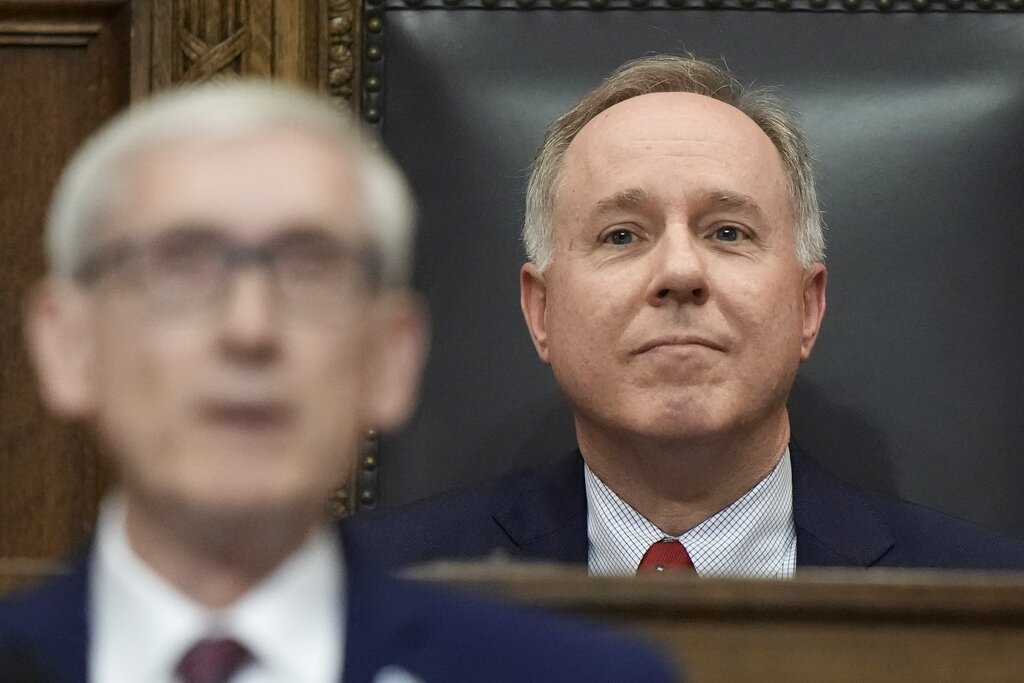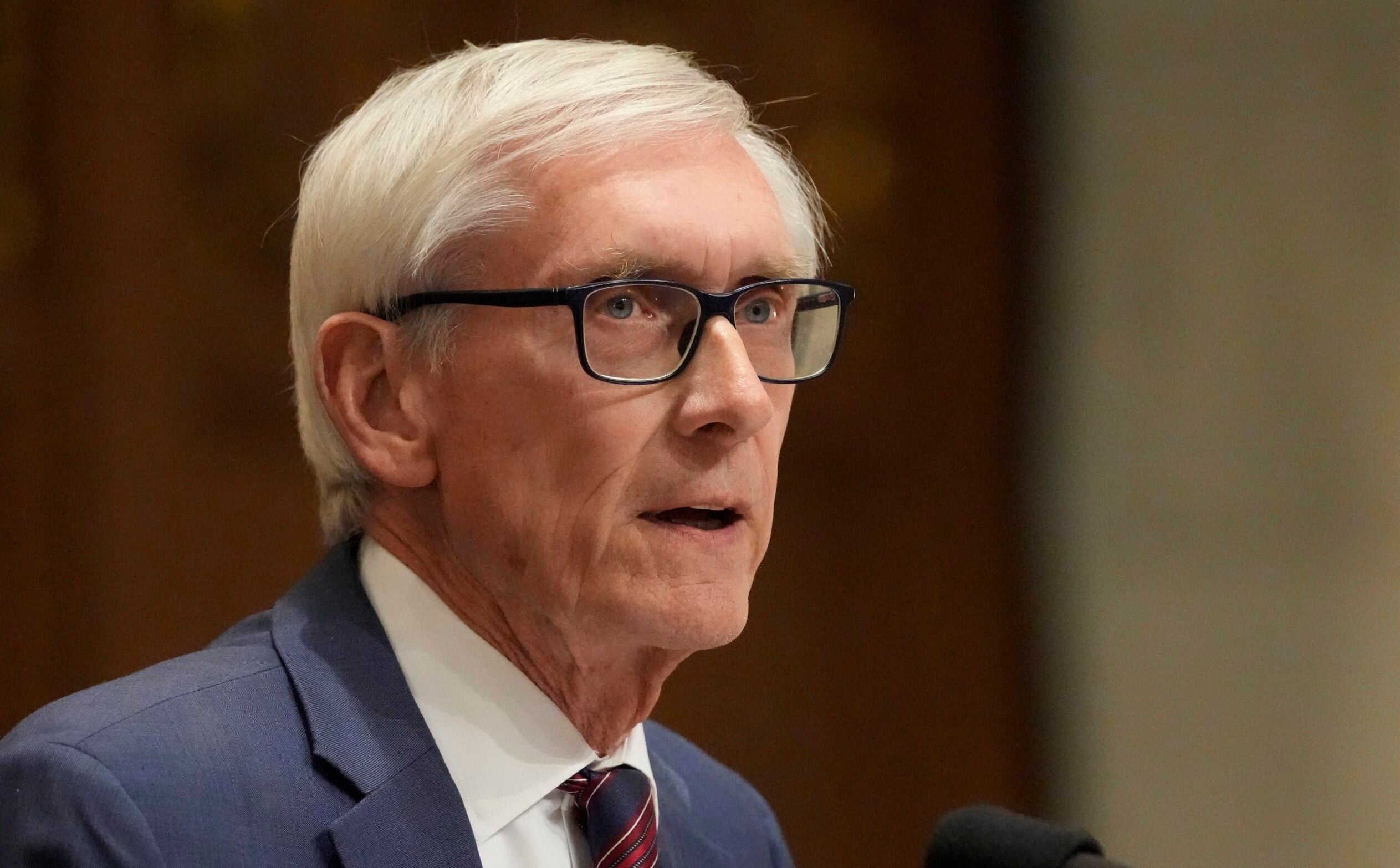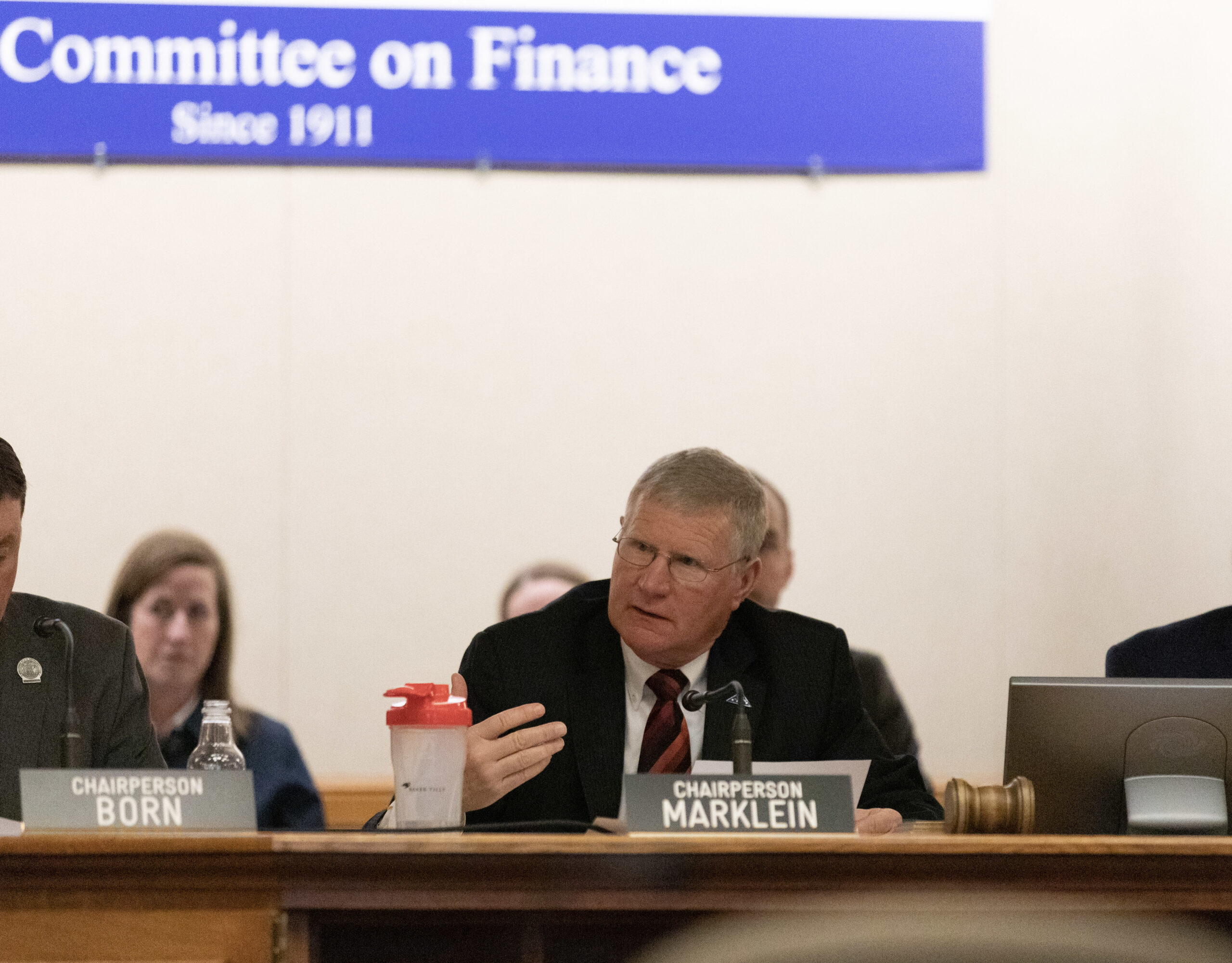With a single vote Tuesday, Republicans lawmakers dramatically reshaped Gov. Tony Evers’ proposed budget.
GOP members of the Legislature’s budget committee voted to remove 545 proposals from the governor’s proposed two-year spending plan, ranging from a new paid family leave program to a deal to fund upgrades to the Milwaukee Brewers stadium. Other Evers budget initiatives rejected by Republicans Tuesday include an expansion of Medicaid, the legalization of marijuana and an enrollment freeze in the state’s voucher school program.
While it’s a dramatic step, it’s also an expected one. Each year that Evers has introduced his budget to the Legislature, lawmakers have started their work on the plan the same way. On the night Evers introduced his budget, Republicans were already talking about rejecting much of the proposal and starting over with their own.
News with a little more humanity
WPR’s “Wisconsin Today” newsletter keeps you connected to the state you love without feeling overwhelmed. No paywall. No agenda. No corporate filter.
But the scope of what Republicans are removing is greater than in years past. With the way the budget committee operates, those ideas will no longer technically be up for debate.
“Don’t hide behind a policy that lumps in over 500 items in one and then prevents the minority party from ever debating again,” said Rep. Evan Goyke, D-Milwaukee, ahead of the committee’s vote Tuesday. “Stand up and be counted.”
But Republicans like Rep. Mark Born, who co-chairs the budget committee, called the governor’s budget unrealistic and out of step with their priorities.
“When the solutions apparently from the Dems are more government, more spending, more welfare, smoke more weed — yeah, our approaches are going to be different,” Born said.
This is Evers’ third proposed budget since becoming governor in 2019, and the third time Republicans have started deliberations by rejecting a long list of the governor’s initiatives.
Joe Heim, a professor emeritus of political science, said the process isn’t surprising to budget observers at this point.
“When you’ve got a Democratic governor and a Republican Legislature, you expect certain things,” Heim said. “There are things in (Evers’) budget that I think he put in to satisfy certain constituencies. You know, he just had an election. So he had certain promises that he would make knowing fully well that this stuff is going to disappear.”
Some of the proposals have been around before. Evers has included his plan to expand Medicaid, for example, in each of his previous budgets, a move he noted this time around would save the state more than $1.6 billion. Each time, Republicans have rejected the idea on day one.
Democrats have argued that Republicans are ignoring the will of voters, noting that Evers won reelection and issues like Medicaid expansion are popular.
“To just say, well, we’re just gonna throw all this in the garbage even though it’s what the people want, even though the governor who was reelected by a big margin in Wisconsin listened to people all over the state … I just think that is both incredibly sad for our state and the opportunities that we’re going to miss out on,” said Sen. Kelda Roys, D-Madison.
Other provisions Republicans removed on a 12-4 party-line vote Tuesday include:
- Evers’ tax cut for individuals who earn less than $100,000 and couples who earn less than $150,000.
- A $235 million initiative to promote mental health in schools.
- $200 million to replace lead service lines.
- Measures that would scale back tax credits for manufacturers and capital gains, which would generate more than $1 billion in revenue state government.
- Universal background checks for firearm purchases.
- The creation of an automatic voter registration system.
- A freeze on enrollment in private voucher schools.
- A cap on insulin co-pays.
- The restoration of public sector union rights that were lost under former Gov. Scott Walker’s landmark Act 10 collective bargaining law.
- The repeal of Wisconsin’s private sector “right to work” law.
Also on Tuesday, Republicans voted to build the budget from “base,” meaning they will add spending to the budget Republicans passed and Evers signed two years ago rather than the one he proposed to the Legislature in February. A handful of Democrats also supported that budget in both houses of the Legislature.
“The bottom line is we are building off base a budget that was bipartisan for the first time since 2007,” said Rep. Tony Kurtz, R-Wonewoc.
While Republicans have spent the past several months criticizing Evers’ budget, Tuesday marked the first time they took votes on pieces of the budget themselves. Deals on bigger issues — like school funding — could come together later this month.
“If the past is prologue, they will eventually come to somewhat of an agreement, at least the more contentious issues,” Heim said. “Most observers that I’ve talked to seem to think that this is actually going to get done by the end of June.”
Wisconsin is expected to end June with more than $7 billion in its general fund according to estimate by the Legislature’s nonpartisan budget office. If lawmakers and the governor don’t agree on a new budget by July 1, state spending will continue at levels set in the current budget.
Wisconsin Public Radio, © Copyright 2026, Board of Regents of the University of Wisconsin System and Wisconsin Educational Communications Board.






